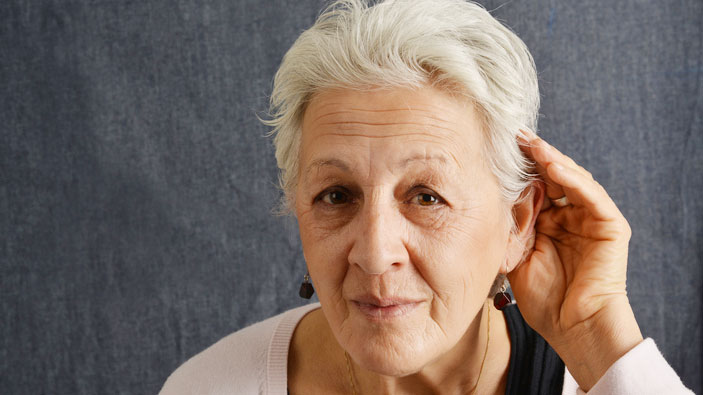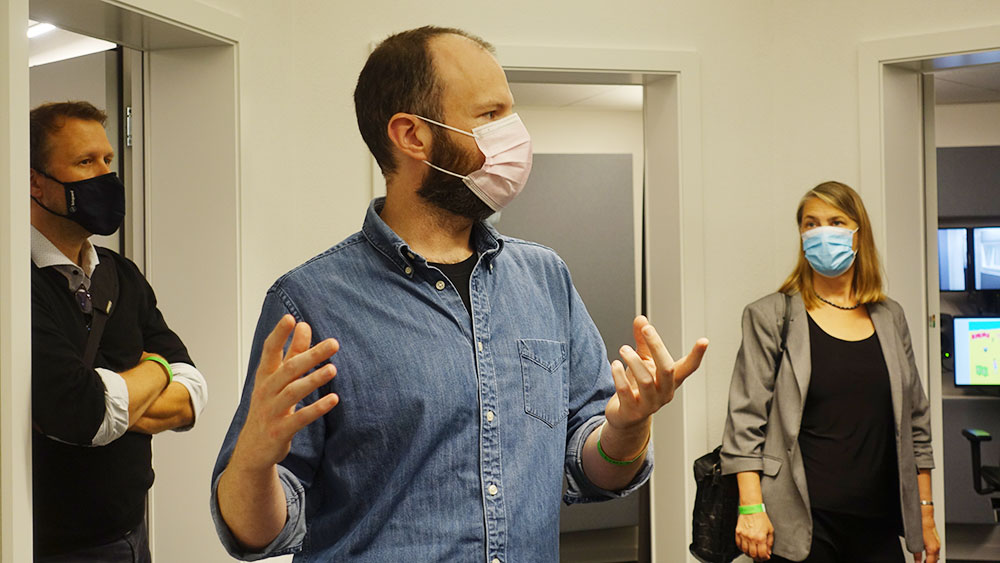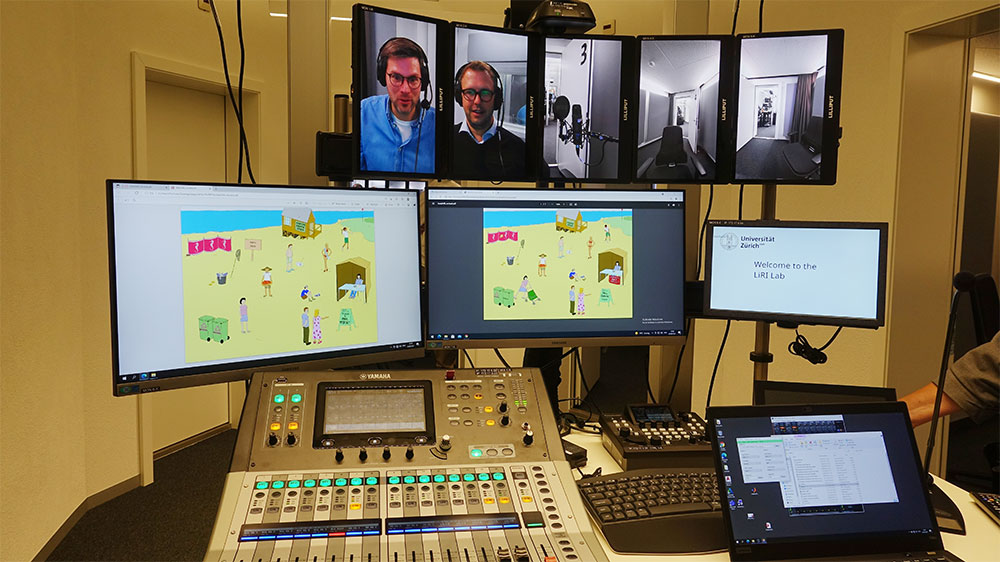Navigation auf uzh.ch
Navigation auf uzh.ch

Friday, 24 September, 14:00: Laboratory manager Andrew A. Clark proudly shows the first group of visitors around the new LiRI laboratory, with its interconnected sound-proof cabins and rooms equipped for video recordings and EEG tests. The new lab provides the high-quality basic infrastructure and equipment that researchers need for their interdisciplinary linguistics research.
Clark points out high-tech devices that hugely improve the quality of sound and video recordings, tools to record voices and lip movements, and eye-trackers that follow the movements of pupils and irises and register where people look and when during speech. The vast amounts of data generated by these state-of-the-art linguistic methods can be stored and evaluated thanks to the large computing power and specialized software provided.
What sort of things will linguists be working on at the LiRI? One researcher excited about using the lab is Professor Nathalie Giroud, head of the Computational Neuroscience of Speech & Hearing research group. She is investigating the connection between dementia and hearing impairment. Lack of acoustic stimulation can make a person more likely to develop dementia or can accelerate its progress, explained Giroud in a short presentation. People who cannot hear well often withdraw from social situations – and their brains thus receive less stimulation. Another reason could be that a lack of auditory stimulation reduces brain activity. Giroud has discovered that certain areas of the cortex are associated with better auditory performance in older people. She can now use the EEG testing infrastructure in the new LiRI lab to explore the topic in further depth.

Sebastian Sauppe, SNSF postdoc at the Department of Comparative Language Science, is examining how our thoughts turn into fully formed sentences. When converting thoughts into speech, the speaker starts with an initial verbal message, which is then gradually codified into language. The process takes mere seconds. This sentence formation process is different depending on the language being spoken. In order to conduct studies comparing different languages, researchers need special mobile recording devices such as mobile eye-trackers, which are available at the LiRI.
Lei He, recipient of an SNSF Ambizione grant at the Phonetics and Speech Sciences Group at the Department of Computational Linguistics, investigates people’s ability to recognize individual voices – a phenomenon that is deeply rooted in the evolution of human behavior. The mechanisms of language recognition have not previously been researched due to the difficulty posed by the high variability of acoustic indicators of a speaker’s identity.
Now, Lei He is researching the connection between visual and auditory features. Can a person’s appearance be predicted by their voice? Or is it possible to reconstruct a voice if you only see a person’s facial movements as they speak? Lei He wants to find out what image listeners form of the speaker when they hear a voice.

An important part of the vision for the LiRI is to encourage researchers to collaborate across subject boundaries. Researchers representing various languages and sub-disciplines of linguistics will work together at the lab. The necessary framework for the initiative was created through the Zurich Center for Linguistics (LiZZ) and the University Research Priority Program (URPP) Language and Space. Elisabeth Stark, Vice President Research at UZH, was heavily involved in the creation of the LiRI. At the launch event, she praised the team effort that had gone into developing the technology platform. The linguistics research infrastructure would strengthen trans- and interdisciplinary research at UZH, she said.
Researchers and students alike will benefit from the LiRI infrastructure, as new methods of data collection, data processing and quantitative analysis are important components of the newly created single major Master’s degree program in linguistics. “Contemporary theoretical and application-related work in linguistics is almost exclusively empirical. Analyzing empirical data is a skill our students need to master,” says Volker Dellwo, professor of phonetics and director of the LiRI Technology Platform (TPF).